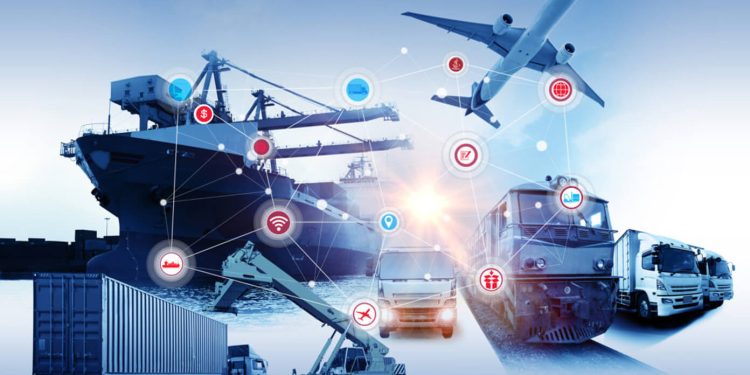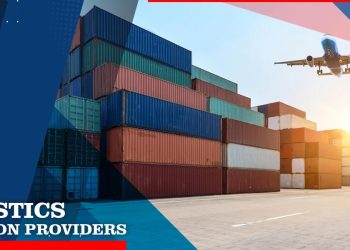Modern innovations are pushing the boundaries and stirring up industries. In the logistics and supply chain industry, new inventions and technologies are revolutionizing the logistics industry in awe-inspiring ways. One such technology is blockchain technology, which holds immense potential to solve the logistics industry problems. Whether it’s improving the shipping process or inventory tracking, blockchain technology provides an array of benefits to this industry.
Blockchain technology explained
It is a peer-to-peer, decentralized, distributed ledger technology that records transactions and tracks assets without involving any third-party intermediary.
A blockchain consists of a chain or series of “blocks” that contain data or information. Each block consists of data, a unique hash (fingerprint) that identifies a block and its contents, and the previous block’s hash. If any party attempts to tamper with the block, the hash also changes, rendering all succeeding blocks invalid. This is a critical feature for fraud detection.
With this basic knowledge of how blockchain technology works, let us now discuss the use cases of blockchain technology in the logistics industry.
Challenges of the logistics industry
Several challenges are plaguing the logistics industry, namely:
- Involvement of several parties, including – shippers, brokers, and other stakeholders.
- Cumbersome documentation process.
- Tracking of inventory.
- Improving security.
- Enhancing transparency.
Blockchain can help address all these issues to make supply chain and logistics more efficient.
Blockchain in the logistics industry
Increased Transparency
The logistics industry has long been looking for ways to overcome the issue of lack of transparency. As all the stakeholders or nodes in a blockchain can track variations or deviations occurring in it, it could very well be the perfect solution.
Maersk, the world’s largest container company, has a blockchain-powered shipping platform called TradeLens, which enables companies to integrate their existing in-house systems with it and seamlessly connect to multiple supply chain partners. All the parties involved can easily exchange documents and real-time data during the shipping process. Members can also create separated ledgers of transactions and share special terms or prices only with specific partners.
Seamless transactions
As there are no disagreements regarding transactions in a blockchain, it enables faster settlements. All entities on the blockchain have the same version of the ledger, which promotes mutual trust, makes transactions much smoother and more efficient, and helps achieve a quick delivery of goods and services.
Fewer disputes
The data on a blockchain is decentralized and immutable, so all the stakeholders can completely trust it. On the other hand, in a traditional supply chain, the stakeholders have to maintain their own records, which often gives rise to discrepancies and disputes if the records do not match up.
Drives up efficiency
In a blockchain-based supply chain, every member can see the data recorded at every step in the supply chain, making it easy to detect nonconformance. For example, let’s consider the construction of an air conditioner. Traditionally, suppose the AC manufacturer discovers that the compressor of the finished product contains a defective valve. In that case, they will then reach out to the compressor manufacturer, who will then contact the supplier of components. This process is not just time-consuming but also gives rise to disputes. In a blockchain-based supply chain, all the members would be able to query the blockchain to trace the origin of the defective valve, saving a lot of time and making the process more efficient.
Auditability And Traceability
The transaction history is locked inside each block in a blockchain-based supply chain, making the tracking and verification procedure easier. For example, it is critical to maintain records to trace each product to its source in the food industry. So, companies like Nestle, Unilever, Walmart, and Dole leverage blockchain to keep track of their products.
Even Diamond-giant De Beers leverages blockchain technology to track diamonds’ journey from mine to retail.
Security
The security provided by a blockchain network is highly efficient and scalable as it is decentralized. No third party can tamper with the information stored in the chain, which enhances the security of a blockchain. This level of protection improves the credibility and public trust of the data shared.
No more lengthy compliance checks
The administrative processes are streamlined in a blockchain-based network; as a result, the auditing procedure is much more sorted and streamlined. Distributed ledger containing all the pertinent information accelerates checks for compliance, which otherwise may take weeks.
Smart contracts for seamless operations
Smart contracts, which execute a transaction automatically when a particular condition is fulfilled, can be used by parties to transfer funds or
conduct any other terms of agreement automatically. For example, an agreement can be signed as a smart contract between customers and suppliers, in which payments are automatically transferred from the customers’ accounts when the customer receives a product with predefined characteristics.
Conclusion
The supply chain and logistics industry is experimenting with the possibilities of blockchain technology in its operations. There are several issues to be tackled before widespread adoption can occur. But looking at the progress so far, it definitely can emerge as a solution to some of the significant inefficiencies that have plagued the industry for several years.







